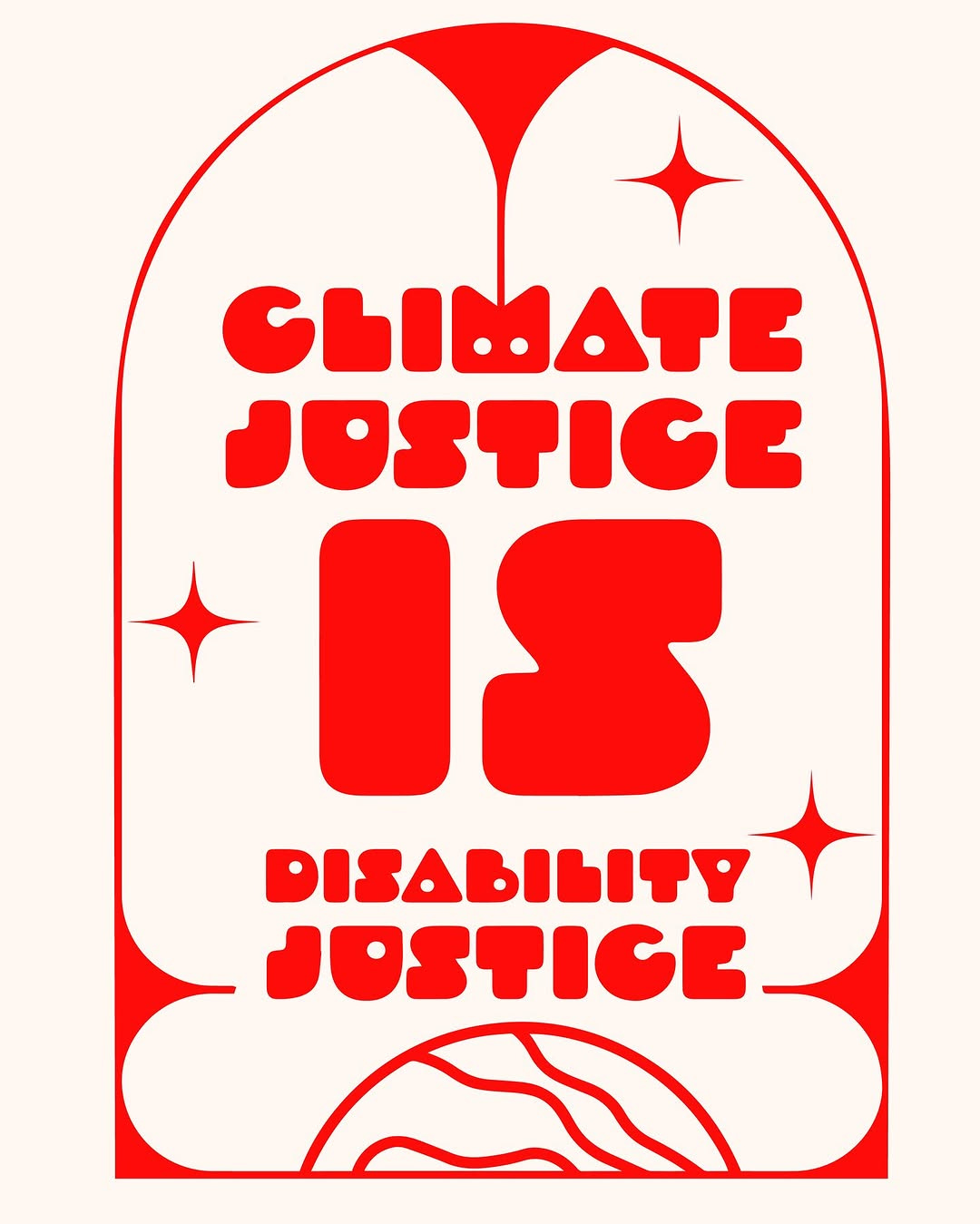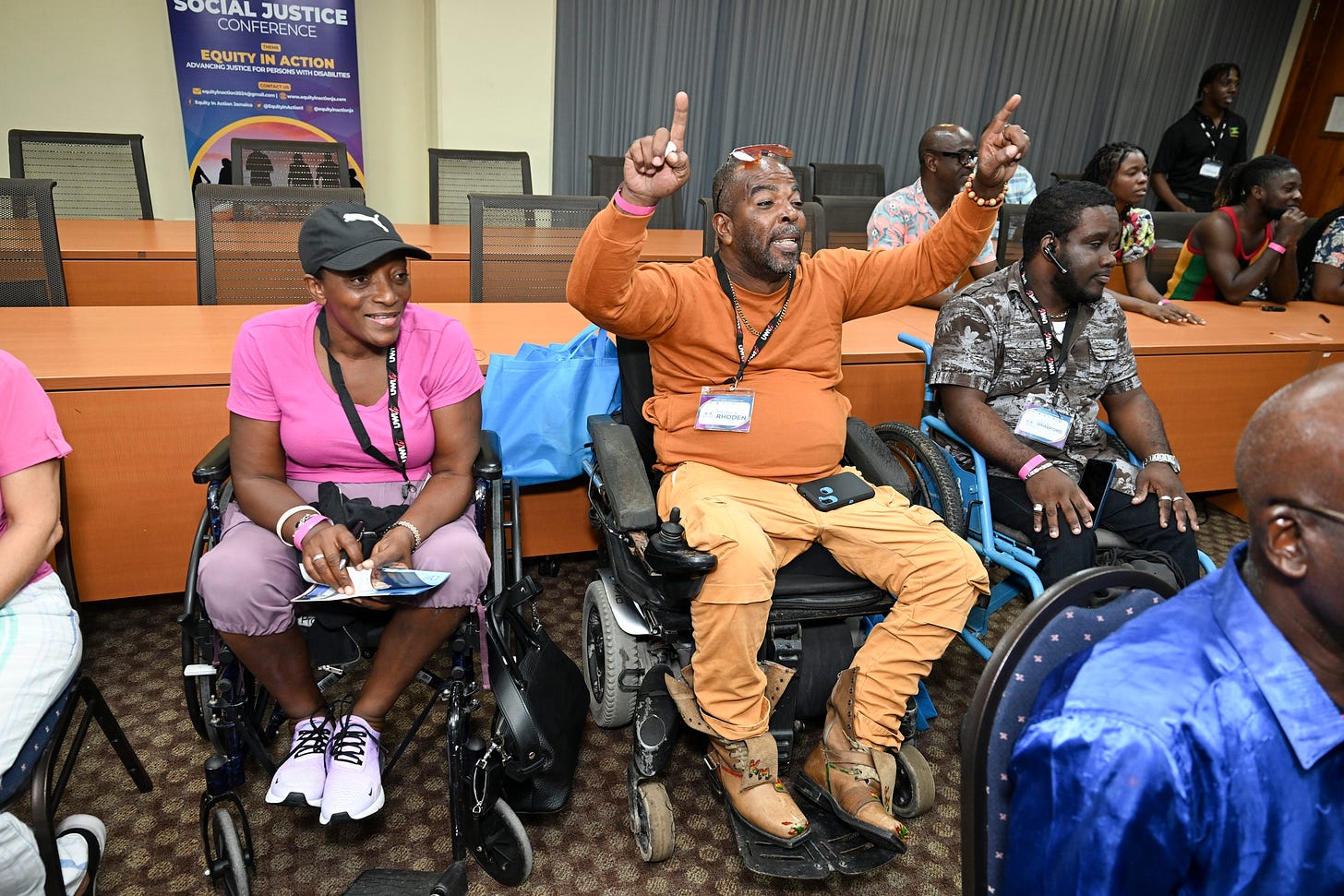NEWS
California Wildfires
Note: This section might press on your tender points. Keep scrolling if you need.
The Disability & Disaster Hotline is supporting disabled folks affected by the ongoing fires in southern California. Call/text 800-626-4959 or email hotline@disasterstrategies.org. You can also check the Genasys Protect app, Watch Duty app, or try calling 211 in LA County.
If you're looking for more resources or ways to help…
Disability Rights California has published a “Wildfire Resource Guide.”
Keri Blakinger at the LA Times explains how you can help the 900+ incarcerated fire-fighters through the Anti-Recidivism Coalition.
cripple published a collection of mutual aid and other resources in the LA area: Part 1 and Part 2.
The United Spinal Association’s Ready to Roll program can help wheelchair users affected by the fires with Disaster Relief Grants.
Disability Disaster Access & Resources is also has a Disaster Relief Grant to help replace lost critical assistive technology, tools and devices, and is also covering some motel/hotel stays.
Mutual Aid Diabetes is helping distribute supplies and information for folks with diabetes.
The fires come as disabled organizers continue to sound the alarm about the widespread and deadly lack of disaster planning for disabled people.

Works like Sins Invalid’s recent Stages of Grief: Crip Hearts on Fire and Dr. Julia Watts Belser’s Disability and Climate Change: A Public Archive have been documenting critical information about climate crisis among disability communities.
Researchers at the University of Edinburgh are developing new BSL signs for talking about the changing climate.
As Samantha Jade Durán and Syanne Centeno recently explained, there is much more work that must be done to protect the aging and disabled people who are most affected by disaster emergencies.
New Works
The full clip of my appearance on The Kelly Clarkson Show last week is now available on YouTube. Stay tuned for more footnotes on disability nightlife in next week’s issue.
The Critical Design Lab’s Contra* Podcast is back with a new season of episodes each Wednesday. Aimi Hamraie talks with Hector Ramirez, a disabled, queer and Two-Spirit, and biracial disability rights advocate, about “how remote access has transformed during the pandemic, and the implications of the pandemic on his disability community and culture.”
Recommendations and a services directory are among the outputs from a Social Justice Disability Conference convened at the University of the West Indies in November 2024.
A new online course from Making Space and Indeed focuses on helping disabled folks gets the skills they need to be a Product Designer.
The US Department of Health and Human Services has published a Language Access Plan and other resources.
CALLS
14(c) Public Comment by Jan. 17
We are in the final few days to leave a public comment on the US Department of Labor’s proposed rule to end subminimum wages for disabled workers. Check out Disability Power Detroit’s video that explains each step in the process and see the National Association of Councils on Development Disabilities’ Public Comment Sharing Toolkit.
When you’re ready, SUBMIT YOUR COMMENT HERE.
NY: Help Save the Consumer-Directed Personal Assistance Program
Organizer Larissa Martin reports:
As a person born with multiple disabilities, I have and will continue to rely on care for the rest of my life. My family and I have used the Consumer Directed Personal Assistance Program (CDPAP), a state Medicaid program that allows people who need care to hire the caregiver of their choice.
Millions of New Yorkers have used this program for decades. It has helped them stay in their homes rather than nursing homes or group homes, and it has helped them live and thrive in the community, as we all deserve to do.
Last week, New York started transitioning CDPAP to operate through a single fiscal intermediary. What is it and why do you need to know about it?
NY is replacing a network of fiscal intermediaries that help pay home care workers with a single one: an out-of-state, for-profit corporation called Public Partnerships LLC (PPL).
The transition is already a major mess with disabled people experiencing dropped calls, long wait times, and lack of language access as they try to get answers to basic questions about necessary continuation of care.
PPL’s track record includes a history of lost or terminated contracts managing similar home care programs in other states. PPL is being sued in a class-action suit in Pennsylvania, where PPL employs over 20,000 people, for systematically denying millions of dollars in overtime pay to care workers.
This hasn’t worked in other states successfully, so why put disabled New Yorkers through this?
Caring Majority Rising is asking all New Yorkers to CALL ON THEIR ELECTED OFFICIALS TO STOP THE DISASTROUS TRANSITION.
Other Calls
Applications for the Disability Belongs Virtual Entertainment Lab are due Jan. 19. More here.
Diversability is seeking a Community Manager for its Leadership Collective. Apply by Jan. 20. More here.
EVENTS
Disability Justice is Beloved Community
Saturday, Jan. 18, 1 - 5pm PT, in-person at the Ed Roberts Campus (Berkeley, CA)
The 2nd Annual “Disability Justice is Beloved Community” gathering is back. The event is brought to you by Disability Justice Culture Club, Disability Justice League - Bay Area, Peace Out Loud, Ability Now, the Anti-Police Terror Project, Hand in Hand, Senior and Disability Action, and The Center for Independent Living (CIL). This gathering of arts, culture, and political organizing will feature multi-cultural drumming, an open mic/variety show, bodyworkers, disabled artists and vendors, music, food, an art build for Reclaim MLK’s Radical Legacy March, short film screenings, and more.
Disability Justice as a New Aesthetic — When Access Becomes Art?
Wednesday, Jan. 15, in-person at Gerrit Rietveld Academie (Amsterdam)
When considering accessibility in the arts, the primary focus often centers on making artworks and spaces more approachable for a broader audience. This typically involves simplifying or enhancing the ease with which art can be understood. But what if accessibility were framed not as a process of simplification, but as one of expansion? Building added depth, rather than reducing them. From the perspective of Disability Justice, this approach fosters a deeper understanding of the possibilities that art can offer. In her talk, singer and researcher Mira Thompson will share critical insights into a Disability Justice centered perspective on the arts, aesthetics, and activism, often stemming from (unseen) histories and movements started by disabled people. Moderated by Menko Dijksterhuis.
Care Work Under Fascism
Wednesday, Jan. 15, 4 - 5:15pm PT, on Zoom
We are facing escalating threats to the health and safety of our communities. Care work is how we’ve always gotten through: when systems fail us, we forge ahead by creating our own and dreaming up a better future. Join our panel of community organizers, artists, and care workers as they discuss their lived experiences and personal and community strategies to persist and stay connected under profound uncertainty and oppression. A conversation with Topher Ávila, Maria Palacios, and TS Banks, who will discuss their experiences and strategies to persist and stay connected.
Ahhh Crip Bath Time Crip Soooakaaahhh Time Together Time
Sunday, Jan. 19, 7:30 - 9pm ET, on Zoom
alexa dexa, moira williams, and Culture Push invite you to a crip specific space for monthly communal relaxation through soaking. We are co-creating a place for messiness; for being together with intentions to take time for ourselves; to love our body mind spirits and celebrate the importance of crip gathering; time and space for being us, you, them, we; for ritual-making together and individually and sustaining our spirits. This is a place with and for us and without expectations.
SuperFest Submissions Committee Info Session
Tuesday, Jan. 14, 5 - 6pm PT, on Zoom
Superfest fans! Do you want to help shape this year’s festival? You could join our Community Selection Committee, facilitated by filmmaker Shaina Ghuraya! With so many films that still promote ableism and tired stereotypes, this is an opportunity to change the conversation and determine what makes good disability representation. We’ll meet weekly starting in January to screen submissions and select eligible films for the Festival Curators to review. If you’re interested, please register to receive more information. This is a mostly volunteer opportunity, with gift cards to thank those who participate regularly.





